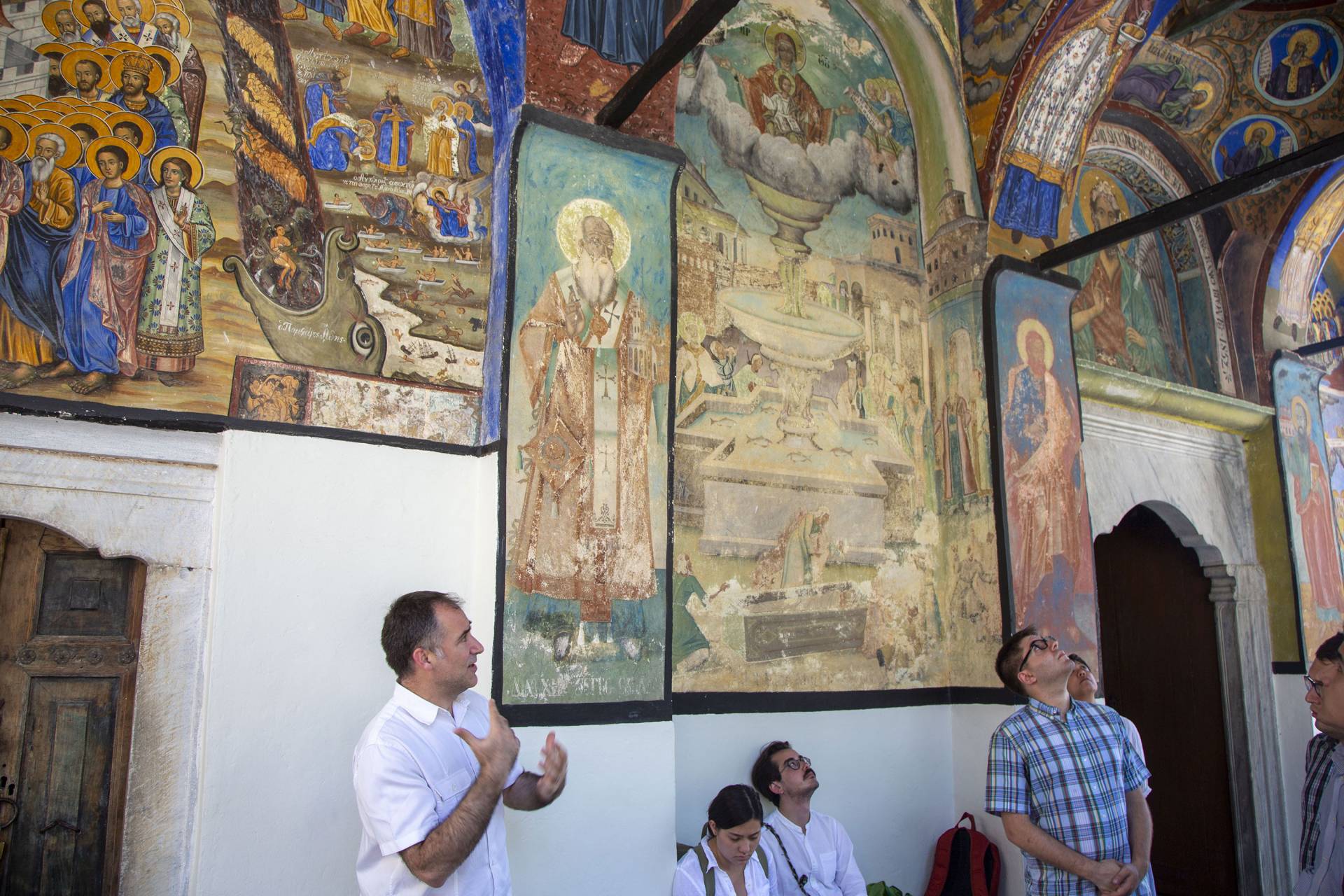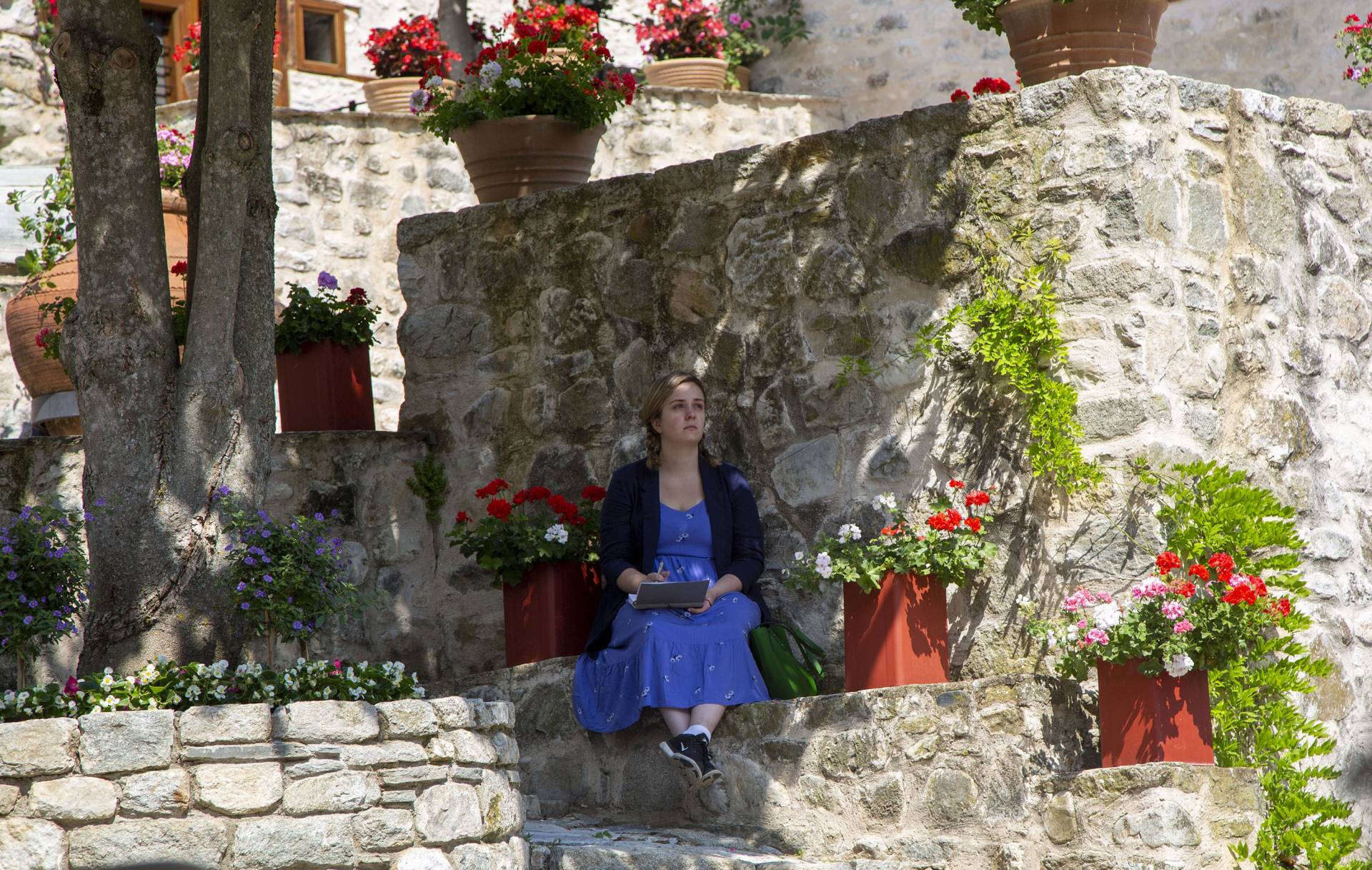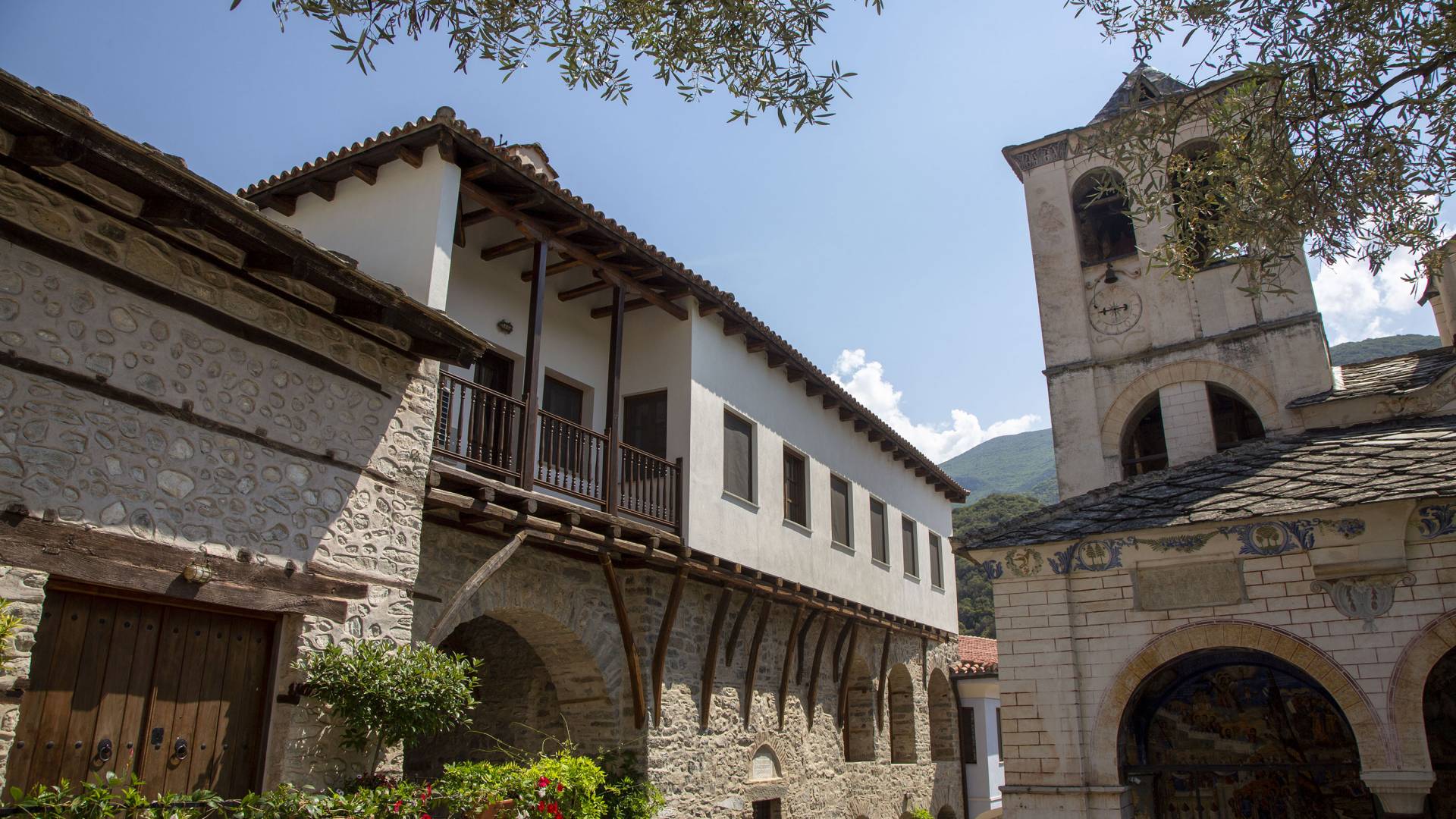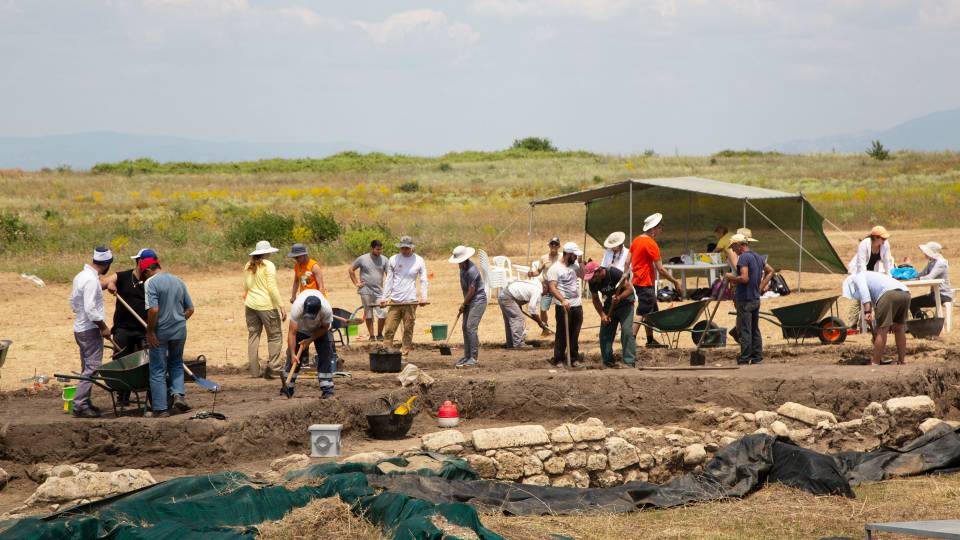In the Mount Menoikeion seminar, Princeton undergraduate and graduate students spend a week at the monastery of St. John the Baptist in northern Greece, where they conduct research and participate in the life of the community by working alongside nuns.
This past summer marked the 15th year of the Mount Menoikeion seminar, which brings together Princeton students for a week of fieldwork study and discussion at a living medieval monastery in Greece.
The monastery of Hagios Ioannis Prodromos, or St. John the Baptist, is tucked away in the foothills of Mount Menoikeion. Located in northern Greece, just outside the town of Serres, the monastery was founded in the 13th century and has been continuously occupied. Today, it is run by nearly 30 Greek Orthodox nuns, who worship and work together to maintain the monastery’s grounds, create homemade products to sell, and welcome outside visitors seeking a place of worship or solitude.
Undergraduate and graduate students also spent time assisting the nuns with their daily chores — such as working in the garden or cleaning up after a meal — forging meaningful relationships with each other and with the Prodromos nuns.
Nikolas Bakirtzis, associate professor at the Cyprus Institute and a graduate alumnus from Princeton’s Department of Art and Archaeology, founded the seminar in 2005 after spending time at the monastery for fieldwork research. "Since my first visit to Mt Menoikeion, I felt that the cultural complexity of the mountainous region and the warm and welcoming presence of the Prodromos sisterhood of nuns would make for a transformative learning experience," he said. Bakirtzis continues to co-direct the seminar with Dimitri Gondicas, director of the Seeger Center for Hellenic Studies, which administers the program.

People from nearby towns visit the monastery for a service and a meal on Pentecost Sunday.
Engaging with the outside world
The nuns preserve Byzantine traditions by maintaining an active role in their community. Students witnessed this involvement firsthand on the first day of the seminar, which fell on Pentecost Sunday.
“Before driving down to the valley where the monastery was, we stopped on the mountain above to look over the monastic complex before entering it for the first time,” said Abby Spare, a senior concentrating in English. “We were arriving during their worship service, and the sounds of the nuns singing and chanting echoing off of the valley from hundreds of feet below was the best welcome you could possibly imagine.”
“So often, we encounter monasteries either as ruined sites or through their medieval archives,” said Nick Churik, a graduate student in classics. “Visiting this monastery gave a very different picture. It was a wonderful experience to be able to see the monastery in full bloom, with people of all ages — families, individuals, pilgrimage groups — visiting the monastery on a feast day.”
In addition to welcoming the community, the nuns stay busy with all sorts of projects to ensure the complex’s continued livelihood, including producing herbal medicines, gathering spices, cultivating crops, and making icons and embroideries.

Nikolas Bakirtzis, associate professor at the Cyprus Institute and a graduate alumnus from Princeton’s Department of Art and Archaeology, gives the group a tour of the monastery grounds.
Diversity cultivating community
As part of the application process, students submit a proposal that is related to their own research interests and centered around the seminar’s theme. This year, participants explored the topic “Material Culture, Place, and the Creation of Memory.”
“We chose the theme of ‘material culture’ because there are so many aspects of life at the monastery that are relevant to this idea, and because it is broad enough to appeal to a wide array of students from various disciplinary backgrounds,” said Sophie Lewis, a graduate student in music who served as one of the seminar’s coordinators.
Because the participants come from a variety of academic backgrounds, their research topics varied widely, ranging from the role of light in Greek Orthodox holy spaces to the relationship between the monastery’s physical layout and the religious practices of its community.
“[The seminar] was a great opportunity to engage with graduate and undergraduate students from a number of disciplines and academic backgrounds and to discuss questions of materiality and social memory around the locus of the St. John Prodromos monastery,” said Churik.

Stone steps make up the 13th-century monastery’s main thoroughfare.
The seminar participants marveled at how their time at Mount Menoikeion brought them all together.
“I am amazed at how the monastery brings out the best in us,” said Nikitas Tampakis, a developer at Princeton’s Firestone Library and one of the seminar’s coordinators. “In a short time, our group grew into a family, eager to share and help the nuns with their daily chores.”
Lewis agreed: “I was surprised by how much our students were able to develop close relationships with so many of the nuns so quickly. They really adapted and showed a willingness to connect with people who were very different from them.”

From left: Princeton staff member Nikitas Tampakis, music graduate student Bora Yoon, Sister Makrina, and undergraduate student Nardeen Khella share a laugh in the monastery's courtyard.
“The nuns’ radical openness was clearly a representation of the relationship built over many, many years with the community at Princeton,” said Bora Yoon, a graduate student in music. “If they could sense your spiritual willingness, they met you halfway and were very giving with their energy, care and time.”
For many participants, this sense of friendship was best encapsulated by the synaxis, a type of celebration and show-and-tell hybrid that the program’s organizers held on the final night of the seminar. At the synaxis, the students performed a traditional Greek dance and sang a folk song for the sisters, and the nuns shared with the students a documentary about their life in the monastery since it was re-established as a nunnery in 1986.
“It was very moving to share our experiences with each other and to come together to celebrate,” said Lewis.
“Before the trip, I was skeptical that such a disparate group — spanning many ages, interests, backgrounds, and so forth — could ‘come together’ to form a close connection,” said Shanon FitzGerald, a senior concentrating in religion. “Happily, I was very wrong about that. The thoughtful conversations, abundant laughter and feelings of mutual affection we enjoyed continue to gladden my heart.”
“The Mount Menoikeion seminar has been a life-changing experience for many of our faculty and students over the last 15 years,” said Gondicas. “It provides a unique combination of interdisciplinary learning and community service in a historic setting that preserves living traditions dating back centuries.”
Applications for the 2020 seminar will open in February.

Princeton undergraduate Abby Spare takes a moment to reflect while listening to the music of the Pentecost Sunday service.





